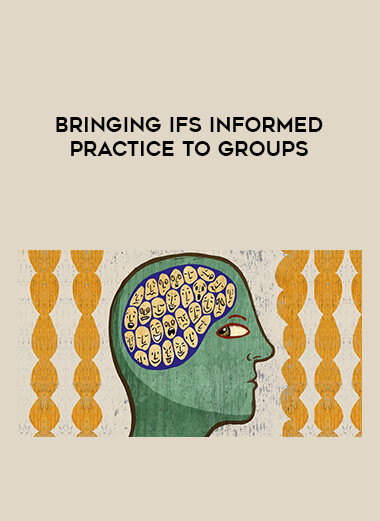Bringing IFS Informed Practice to Groups
 Salepage : Bringing IFS Informed Practice to Groups
Salepage : Bringing IFS Informed Practice to Groups
Arichive : Bringing IFS Informed Practice to Groups
Faculty:
Richard Schwartz, PhD | Sue Richmond, LCSW
Duration:
13 Hours 57 Minutes
Copyright:
May 18, 2021
Product Code:
IRS035314
Media Type:
Online Course
Module I:
Whether you are working for an agency or are in private practice, this module will provide you with an overview of how to start an IFS group, from getting buy-in from prospective participants to introducing IFS language and concepts to the whole group. Whether you offer open or closed groups, this module will show you three distinct approaches to using IFS with groups. In each approach, Sue will offer a guide for how to start each group, use the 6-Fs to help participants unblend from their parts, and teach participants how to speak for their parts rather than from their parts with the intention of creating greater connection to Self and others.
Module II:
One of the most valuable ways of learning the IFS model is to watch trainers do real-life demonstrations in IFS trainings. In this module, you will watch a recorded demo of Sue facilitating a closed group with five participants, all of whom know each other. The group was unscripted, and Sue facilitated it as she would any other closed group. It is a demonstration of Option One described in Module I. At the beginning and end of the group, Sue comments on the process of running the group.
Module III:
This module focuses on handling one of the most challenging stages of group development: The “storming” phase. Rather than pathologizing participants or their parts, you will learn how to understand challenging group process from an IFS lens, as well as learn how to use IFS techniques to heal interpersonal ruptures and help unblend participants from extreme parts. This module will illustrate how Sue teaches participants to track their own parts during challenging group conversations, which can lead to courageous conversations, unburdening of painful family-of-origin issues, and greater Self-energy.
Module IV:
Although the focus in therapy groups is primarily on the participants, this module will reflect on the importance of the role of the therapist. Sue will address ways to work with therapist parts that get activated or hijacked when facilitating group. She will also distinguish between therapy groups and consultation groups, and describe how agenda-driven groups, such as work groups and training groups, can benefit from applying some of these principles. Sue will also touch upon the nuts and bolts of starting an IFS group, including recruitment, marketing, and group member selection.
Richard Schwartz, PhDRelated seminars and products
IFS Institute
Richard Schwartz began his career as a systemic family therapist and an academic and he is now on the Faculty of the Department of Psychiatry at Harvard Medical School. He is also a Senior Fellow of the Meadows treatment center in Arizona. Grounded in systems thinking, Dr. Schwartz developed the Internal Family Systems (IFS) model in response to clients’ descriptions of various parts within themselves. In 2000, he founded the Center for Self Leadership (now IFS Institute – www.ifs-institute.com), which offers three levels of trainings and workshops in IFS for professionals and the general public, both in this country and abroad. A featured speaker for national professional organizations, Dr. Schwartz has published many books and over fifty articles about IFS.
Sue Richmond, LCSWRelated seminars and products
Sue Richmond, LCSW, is a licensed clinical social worker who started in the health care field in 1989 and has been practicing individual and group psychotherapy since 1997. She received a Bachelor of Arts degree from Keene State College, and her Master’s of Social Work degree from the University of Connecticut, with a specialization in social group work and casework. Sue has experience working as a therapist in a partial hospitalization program, and as a crisis clinician doing psychiatric consultations within a hospital setting. In addition to working with the general population, she has also worked with veterans and their families. Sue works with people living with a wide range of disorders including depression, anxiety, substance abuse, and a variety of stress-related disorders resulting from difficult life transitions. She has brought her skills into the classroom teaching as an Adjunct Faculty Member of the Social Work Department at the University of Saint Joseph, West Hartford, CT as well as teaching Psychiatry Residents, Nursing Students, Social Work, Psychology and Chaplain Interns about individual and group psychotherapy at the UConn Health Center in Farmington, CT. She brings to her practice life experience and a deep desire to assist others in psychological and spiritual healing. Her intention for her clients is that they feel uplifted and more closely aligned with their hearts’ true desires as a result of engaging in therapy.































Reviews
There are no reviews yet.